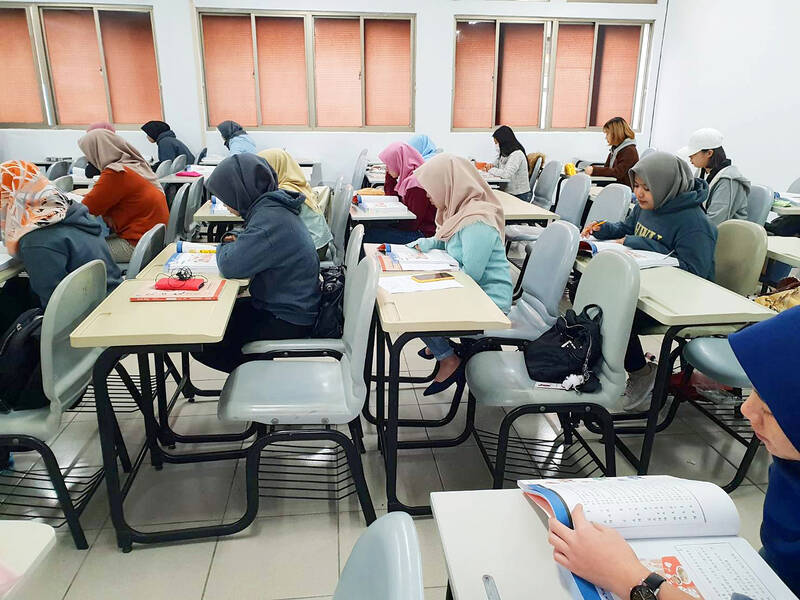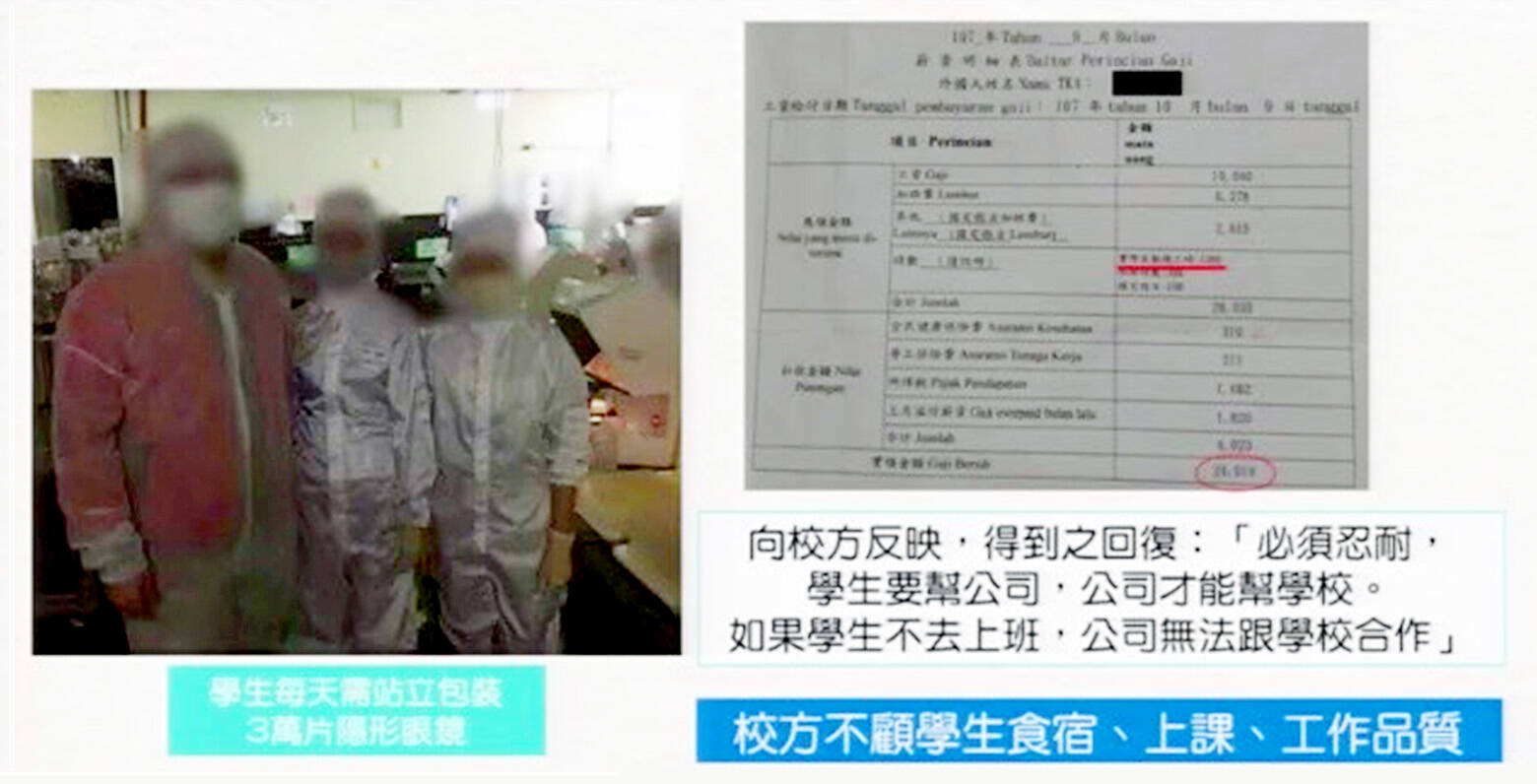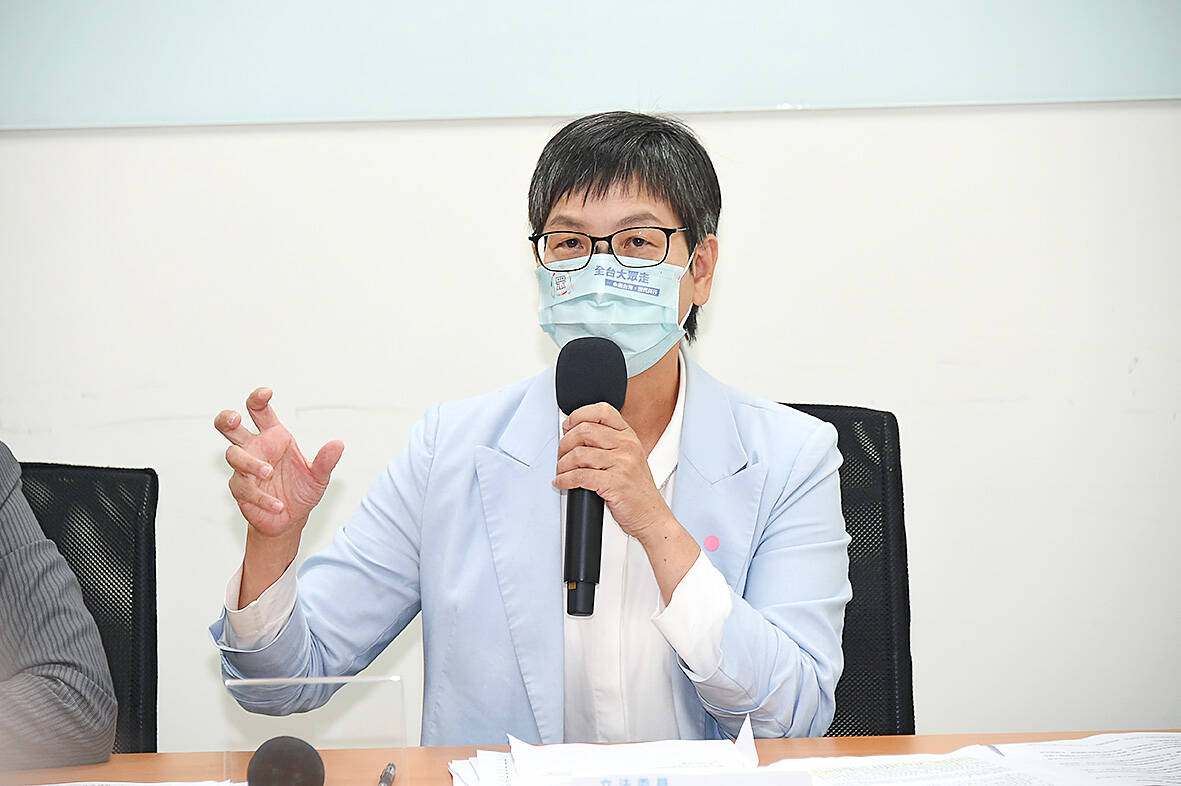I was driving my Delorean across a university parking lot in Taoyuan, listening to the news about the Vietnamese students in Taiwan who had been kidnapped and forced to work as prostitutes. I hit a button to close the window, and the car suddenly exploded into the air! I saw the years rush by on the digital clock: somehow I had reached 2026! As I peered in wonder out the window, I saw that the university was now called Eternal Sincerity University (slogan: the Taiwan university of the Future, Today!).
What an opportunity! I walked right into the office of the Dean, Agnew Chen (啊哥), admiring the pictures on his wall of the board members and donors with their lovely intricate tattoos and tightly curled hair. Delighted to meet a person from the past, he explained to me how the future worked.
“In your day, the university programs were quite primitive, still involving classroom experiences. So inefficient! Our programs of tomorrow are more advanced, dispensing entirely with the need for classrooms and someday, our researchers hope, such outmoded, quaint ideas as degrees or graduation. Those obsolete practices simply left students unprepared for their lives of poverty wages and overwork in a world of high wealth concentration. We can do better! Our foreign students now go directly to the factory — a major advance in administration. Moreover, we are currently working on expanding this concept across the entire university.”

Photo courtesy of Hsing Wu University
Adopting a didactic tone, he added: “For example, our university has an extensive work-study program in which our international management students from southeast Asia work overseeing parts assembly on local production lines. Meanwhile, our biology students from Africa are currently studying anatomy at the Olfactory Joy Processed Meat Corporation.”
“We were able to start these programs only because so many other universities had run trial runs with hands-on learning programs for foreign students from Asia and Africa in local factories. And our local officials were very cooperative! In your day they kindly permitted tests of this program year after year, with no intervention. So brave and forward looking, local authorities — we owe them a debt of thanks.”
He bowed his head and was silent for a moment. “These were very successful programs for the factories and for those university officials, who have retired quite well.”

Photo: Lin Hsiao-yun, Taipei Times
Warming to his topic, he continued. “Our industry-university cooperation program is second to none. In partnership with area temple association members — you can see some of their photos on my wall — our local students get hands-on experience of real-life situations, such as being kidnapped at a job interview and forced to give up their account numbers, passwords and three pints of blood a day.”
I marveled at the brilliance of this. “O brave new world that has such privatization in it!” I cried.
The Dean tossed some papers my way.

Photo: Tu Chien-jung, Taipei Times
‘DORM LIFE, REAL LIFE’
“As part of this program, we have created many true to life training programs for the students. For example, we make them work 23 hours a day in the lab, so they can understand how to work for companies in Taiwan. We call them in randomly for work during their sleeping hours to simulate actual boss behavior. Under our pioneering ‘dorm life, real life’ program, the students pay to purchase a dorm room at 2519 times their current income. For a small fee, they can add a real illegal rooftop structure.”
This curriculum was too advanced for me, so I moved him to a different topic.
“Do you remember, the situation with the Vietnamese female students in 2022? Anything like that happened here?”
The Dean gave me a shocked look. “Of course not. Our girls are all busy on the production lines.”
“What about the students from Europe and North America?” I asked.
“Poor things. They complain constantly about having to take boring classes in person. We’re working on eliminating that entirely. After all, someone has to write the Masters theses for our local eMBA students!”
He waved a hand. “But never mind that. Have I told you about our innovative exchange program with Costa Rica, where the students learn microeconomics skills and elderly care skills while serving in local households?”
“Brilliant!” I cheered. “So the foreign students all pay fees for this?”
“Never!” the Dean said with an injured look. “That would be unethical. Instead, we collect government subsidies for them.”
He called up his investment portfolio and began to gaze reverently at it, so I thanked him for his cooperation, and strolled out into the Quad.
PLAGIARISM CRISIS
There I ran into a university professor, Dr. Homer Li. He stopped to talk to me, pulling his pants up over his navel and smoothing out the wrinkles in his starched white button-up shirt. I asked him about the future of university education in Taiwan.
“Well, I don’t know.” He shook his head dolefully. “As I am sure you have heard, Taiwan is suffering from a plagiarism crisis,” the old scholar told me.
“Really?” I asked. “What crisis?”
“What crisis!” he cried. “We are running out of papers to copy. It’s a total crisis! At our current pace, we will have copied part or all of all known scientific papers by March of 2028. We were getting a lot of papers out of China, but then we discovered to our dismay that they were all being retracted for being fake. The scoundrels!” he wailed at me. “How can our local politicians have national careers now?”
I pointed out that the university’s brilliant industry-academia cooperation programs should go far to address that. He shook his head vigorously.
“Too slow. Our research program with AI chatbots is progressing quite nicely, though. If we can make a breakthrough in the next 18 months, we should finally be able to generate papers faster than we can copy them.”
He waved at me and ran off to pirate some more code. Overwhelmed by my experience, I fired up my Delorean and returned to 2022, happy to know the future of the nation’s education was in good hands.
Notes from Central Taiwan is a column written by long-term resident Michael Turton, who provides incisive commentary informed by three decades of living in and writing about his adoptive country. The views expressed here are his own.

Taiwan has next to no political engagement in Myanmar, either with the ruling military junta nor the dozens of armed groups who’ve in the last five years taken over around two-thirds of the nation’s territory in a sprawling, patchwork civil war. But early last month, the leader of one relatively minor Burmese revolutionary faction, General Nerdah Bomya, who is also an alleged war criminal, made a low key visit to Taipei, where he met with a member of President William Lai’s (賴清德) staff, a retired Taiwanese military official and several academics. “I feel like Taiwan is a good example of

March 2 to March 8 Gunfire rang out along the shore of the frontline island of Lieyu (烈嶼) on a foggy afternoon on March 7, 1987. By the time it was over, about 20 unarmed Vietnamese refugees — men, women, elderly and children — were dead. They were hastily buried, followed by decades of silence. Months later, opposition politicians and journalists tried to uncover what had happened, but conflicting accounts only deepened the confusion. One version suggested that government troops had mistakenly killed their own operatives attempting to return home from Vietnam. The military maintained that the

Jacques Poissant’s suffering stopped the day he asked his daughter if it would be “cowardly to ask to be helped to die.” The retired Canadian insurance adviser was 93, and “was wasting away” after a long battle with prostate cancer. “He no longer had any zest for life,” Josee Poissant said. Last year her mother made the same choice at 96 when she realized she would not be getting out of hospital. She died surrounded by her children and their partners listening to the music she loved. “She was at peace. She sang until she went to sleep.” Josee Poissant remembers it as a beautiful

Before the last section of the round-the-island railway was electrified, one old blue train still chugged back and forth between Pingtung County’s Fangliao (枋寮) and Taitung (台東) stations once a day. It was so slow, was so hot (it had no air conditioning) and covered such a short distance, that the low fare still failed to attract many riders. This relic of the past was finally retired when the South Link Line was fully electrified on Dec. 23, 2020. A wave of nostalgia surrounded the termination of the Ordinary Train service, as these train carriages had been in use for decades